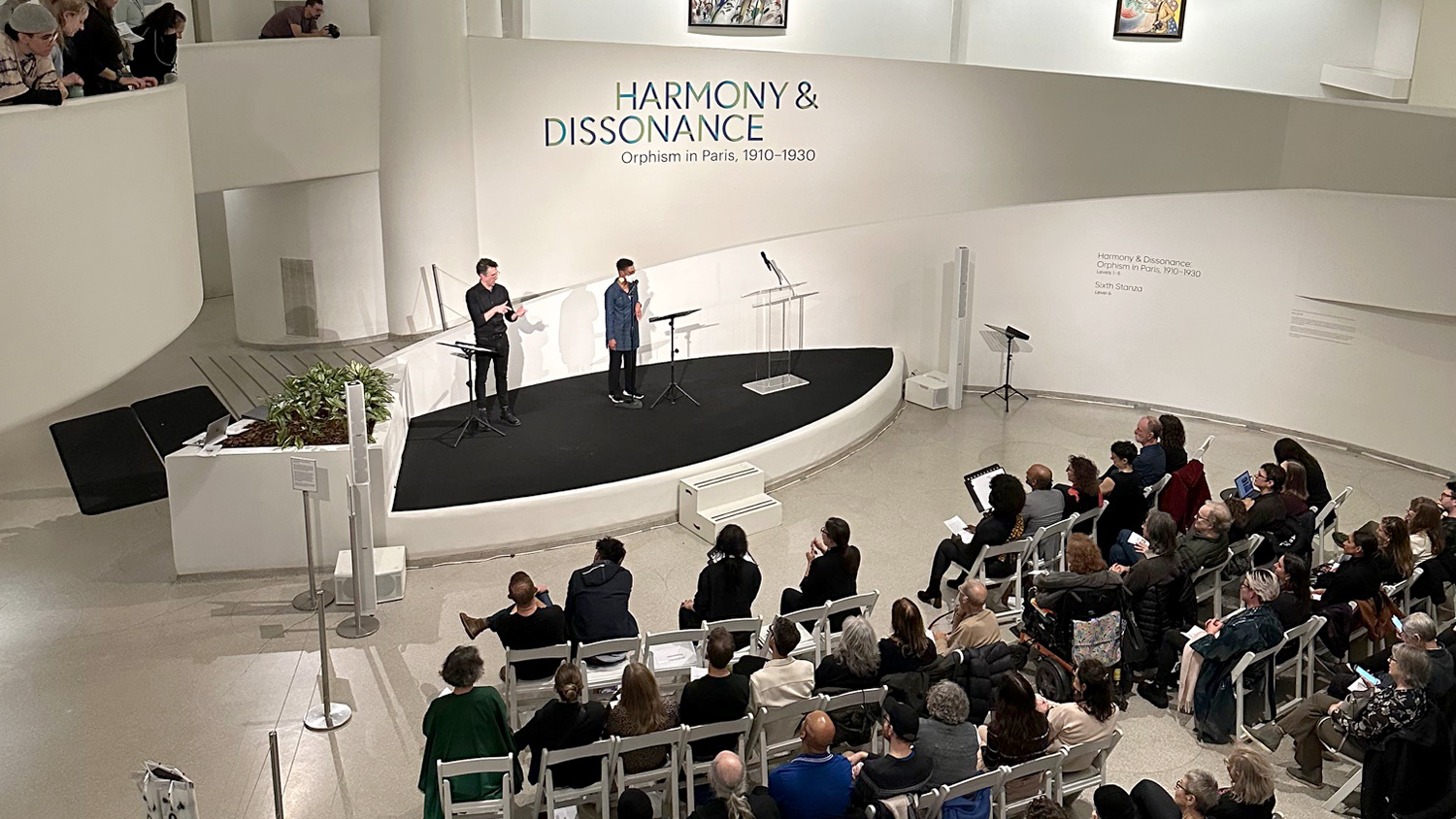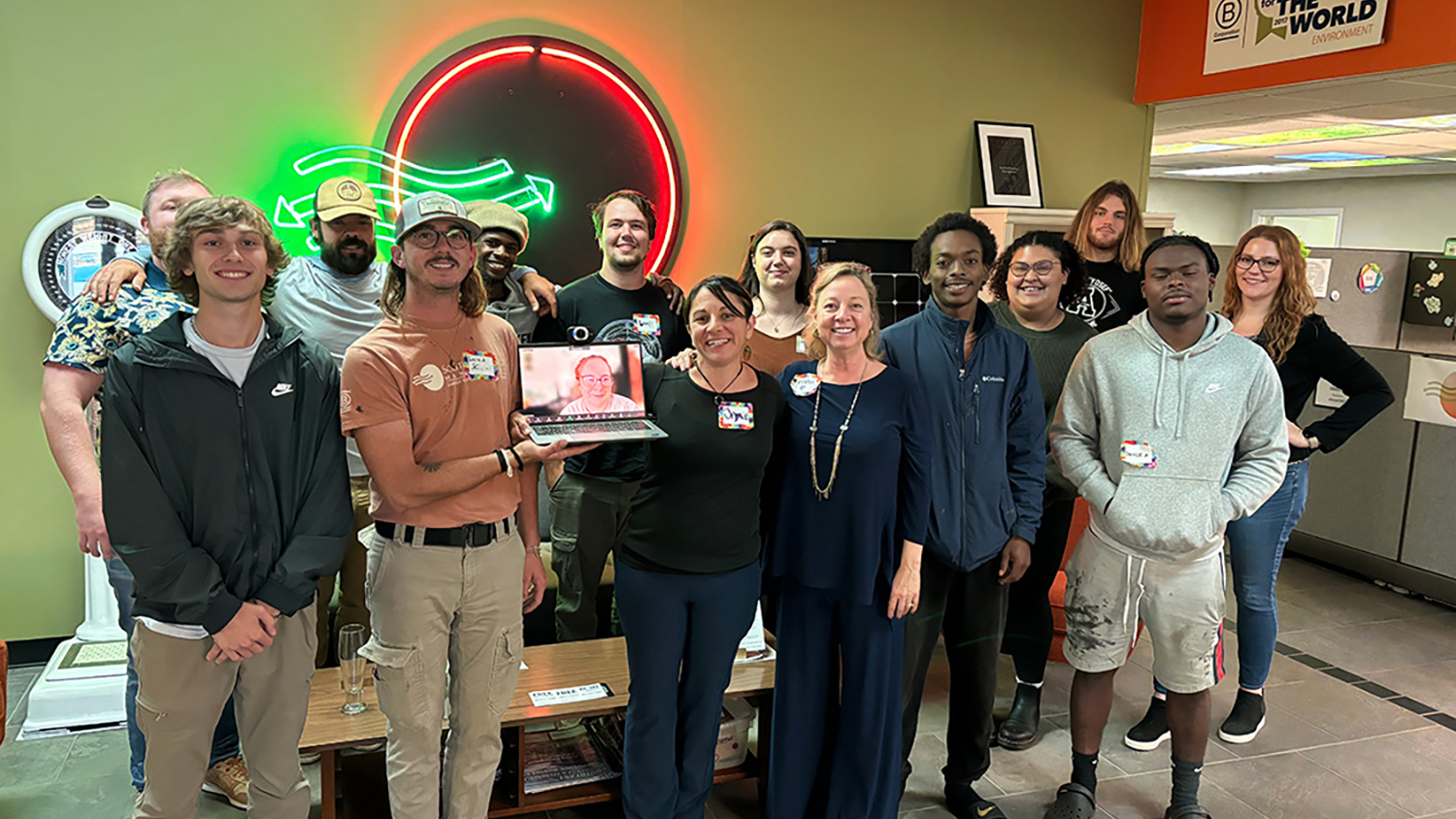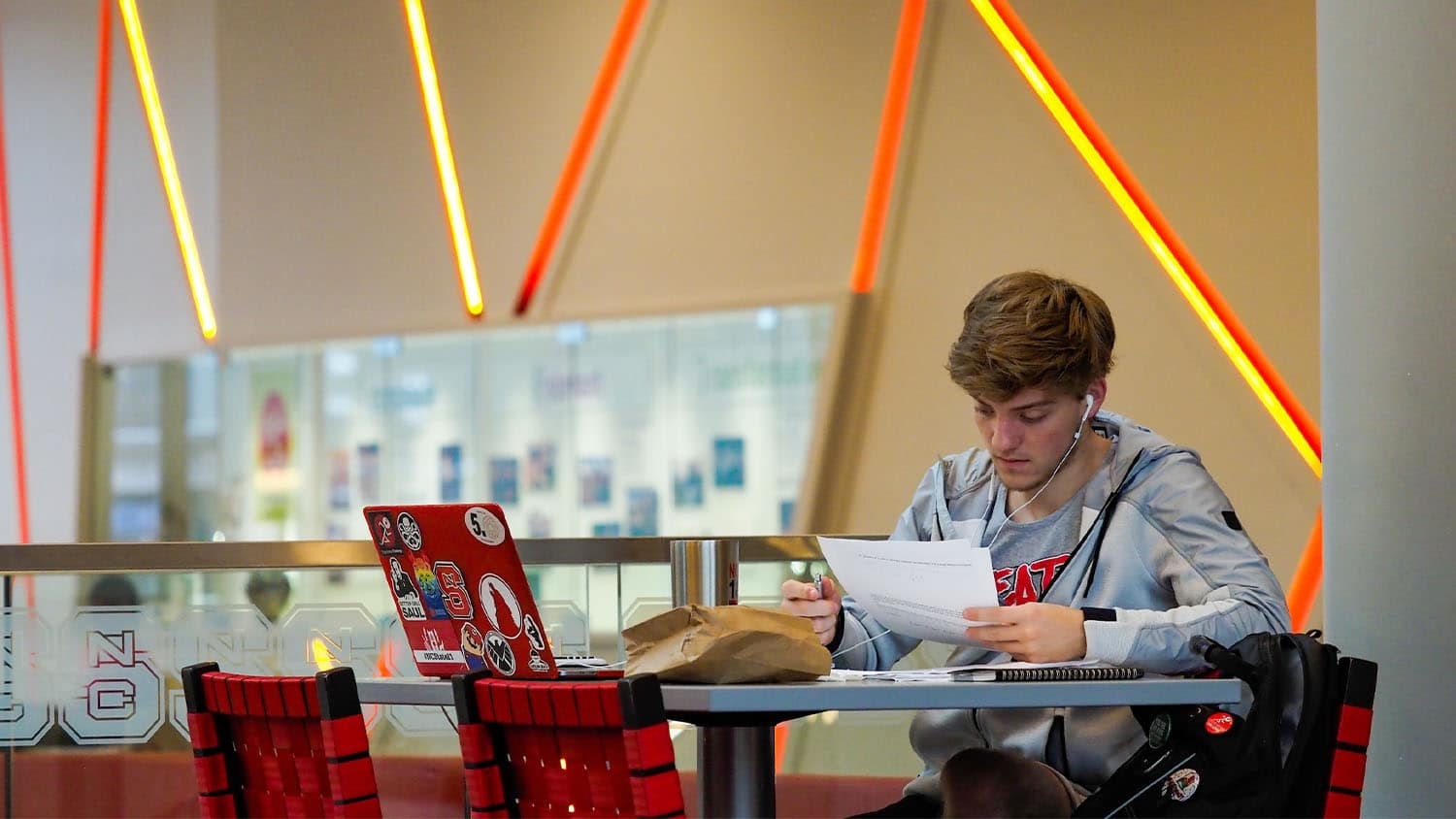Student’s Documentary Captures ‘Common Link’ Between Us: Humanity
Editor’s Note: This Q&A by NC State student Iman Usmani was originally posted to the local news website, College Town.
Laila Knio, a senior psychology major who is graduating in May, has completely maximized her four years at NC State.
Between her responsibilities as a Park scholar, avid traveler and pre-med student, she managed to create an entire film. The Common Link is a 45-minute documentary that chronicles the tales of eight different Lebanese people. Knio, who is Lebanese, has spent exactly half her life in Lebanon and half in America. For her film, she traveled back to her birthplace to capture and share stories of humanity.
I got the chance to meet Laila recently and discuss the film. The Common Link will premiere at the Hunt Library at NC State at 7 p.m. on April 5. The event is free and open to the public.
Iman Usmani: Tell me a little about your project. What sparked the idea?
Laila Knio: My mom is American and my dad is Lebanese, so I grew up bilingual from a small age. I never felt like I spoke one language because it seemed like my brother and I were only comprehensible by our parents.
So, being a pre-medical student, I don’t have a background in film production, I don’t know a thing about video editing. This wasn’t a project based out of having the tools to do it. It was brought by having this idea, and then I taught myself film editing for the next two and a half years.
Being a part of both cultures, I wanted to share really what I know of Lebanon and growing up in the Middle East. That is a culture with very compassionate people. It’s a culture where relationships are kind of built around food and are very passionate about tea. I wanted people to understand the people fostered in that culture are perhaps different than what is portrayed in the media. I wanted to share that story through a very specific lens.
The film is called The Common Link, so I wanted to show people that transcended socioeconomic boundaries to help someone because of the humanity that links us all. At its core, it a collection of stories that links not only the eight people that I interviewed, but kind of permeates around the people of Lebanon.
IU: How did you find the eight people who you interviewed?
LK: When I had this idea in my mind where I wanted to bring what I know of Lebanon into this film, I kind of told everyone I knew when I went back to Lebanon. I told my family, friends, strangers.
People often ask if it was the hardest part of this film, but to be honest it was the easiest part of the film. The people that I wanted to find are kind of the norm. I wanted people that were going to be good storytellers, but I had full faith that anyone interviewed I would be able to integrate in the story.
The people themselves, one of them is my third uncle that started the nonprofit ambulance services. He’s rescued family and strangers out of rubble. I don’t want to give too much away. About the Muslim sheikh — my dad was having lunch in a restaurant and he heard the owner of the restaurant and his son talking about this Muslim sheikh. What struck my dad was that the civil war happened 30 years ago and the owner and his son were still talking about what the sheikh did during that time. It amazed him that people are still talking about him, so we found him and interviewed him.
IU: Were the people receptive to talking about their stories?
LK: Super receptive. Two of the last people that show up in the film are — I struggle with what to call him — a savior [and the man he rescued]. He’s a man that found someone who was on the ground during the civil war and it was still shelling. He borrowed a car and drove him to the hospital while it was still shelling, risking his life to get this guy health care. I found him and the guy who he rescued.
It’s funny. The guy who was the rescuer, he said, “I haven’t thought about this in so long. Thank you so much for reminding me and giving me the opportunity to reflect on it.” When I called the guy who was rescued, he said, “A day never passes when I don’t think about it.”
IU: What’s your plan for the film?
LK: For the past two and a half years, this film has been my baby. No one has seen it except my mom.
To show it to a group of people and get such amazing and positive feedback, it was such a surreal moment in my life.
The premiere is April 5 at 7 p.m. in the Hunt Library auditorium. I hope a lot of people in the community come to the premiere.
IU: Out of pure curiosity, how did you teach yourself how to film edit?
LK: Oh, gosh. I think being a physician would be far easier than being a film editor.
Editing is probably the hardest thing I have ever done in my life. The film can take an unlimited amount of forms. My task was to pull together all these stories, deconstruct them, and put them together in their own beginning, middle and end. To actually do it, I watched every YouTube video out there and read every article [about film editing].
Each interview was probably an hour to two hours. And in the film, they are all closer to 5 minutes each, so I had to be really stringent. No matter how interesting something someone said was, I had to ask myself, “Does this propel the story forward?” I had to cut my losses and believe in my gut that I was making the right decision.
Is it the best story that could have been told? No. But it is the story that I am able to tell now.


